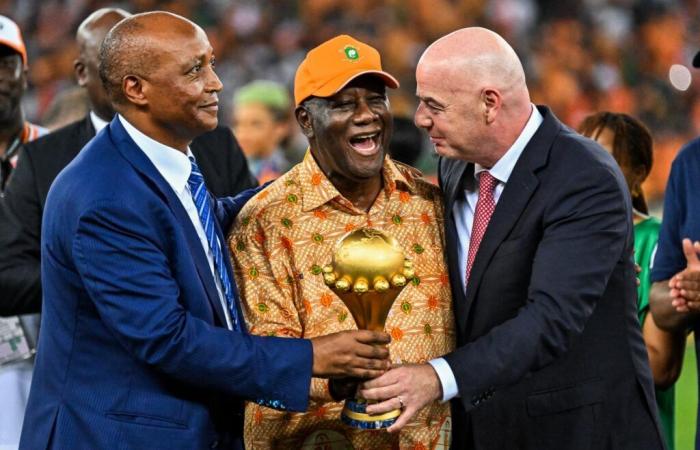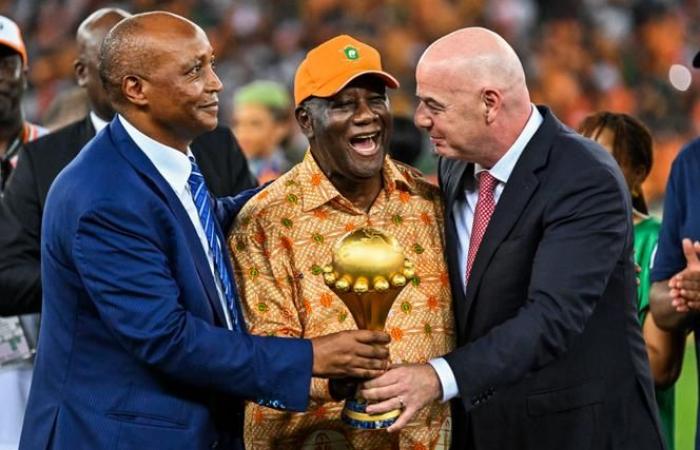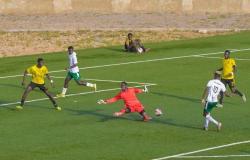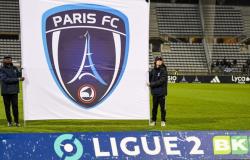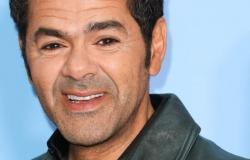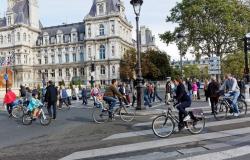An economist by training, Alassane Ouattara has not forgotten that Côte d’Ivoire invested around 1.3 billion euros to host the last edition of the African Football Cup of Nations (CAN), in January, won by the Elephants and considered one of the best organized in the history of the competition. A colossal sum, divided between the construction and renovation of sports infrastructures and other equipment in transport, hotels or communication.
Read also | The African Football League, Gianni Infantino’s great missing project
Read later
The Head of State decided to capitalize on the positive image of this CAN by developing sports diplomacy based in particular on the stadiums used during the tournament. The country has six venues approved by the Confederation of African Football (CAF), in Abidjan (two stadiums), Bouaké, San Pedro, Yamoussoukro and Korhogo. For several months, Ivory Coast has become a host land for several African selections which do not have a stadium up to standard, such as Benin, Burkina Faso, Guinea, Comoros, Chad and Burundi.
For businessman Eugène Diomandé, president of Séwé Sport de San Pedro, unlike countries which recently organized the tournament and no longer worried about the maintenance of the stadiums, Côte d’Ivoire made the choice to make them profitable. “The authorities want to make Côte d’Ivoire a country that counts in Africa, he notes. They focus in particular on sport and especially football, thanks to intelligent use of the different structures which were used for the CAN. This tournament has boosted the image of Côte d’Ivoire, the State is therefore seeking to benefit from it with a return on investment. »
Morocco, “a source of inspiration”
This activism is not limited to football, even if the latter takes a preponderant part in the presidential strategy. Thus, in 2025, Ivory Coast will organize the African women’s basketball championship and the African judo championships.
“The country wants to shine not only regionally, but also continentally and even internationally. It welcomes selections that do not only come from West Africa”analyzes Jean-Baptiste Guégan, teacher at Sciences Po and author of several works on sports geopolitics: “It is a way of developing and strengthening diplomatic relations with many States, but also of proving to sporting authorities that Côte d’Ivoire knows how to organize international competitions without security hiccups, since the CAN took place without problem major. »
Read also | In the DRC, President Tshisekedi wants to make football a tool of “soft power”
Read later
In August 2023, the Ministry of Tourism signed a partnership with Olympique de Marseille. Like Morocco or Rwanda (sponsor of Paris-Saint-Germain and Arsenal), Côte d’Ivoire has bet on a soft power through sport. A major player in continental football, the Cherifian kingdom, where the CAN 2025 and especially the 2030 World Cup will take place (as part of a tripartite organization with Spain and Portugal), has established partnerships with around forty federations football, mainly in sub-Saharan Africa.
“Morocco is necessarily a source of inspiration for Alassane Ouattara, even if the Moroccan strategy was planned over more than ten years while the Ivorian strategy was less prepared and results in part from the success encountered with the last CAN”continues Jean-Baptiste Guégan. The Ivorian government is also banking on the development of diplomatic relations through sport to achieve other objectives. “When a country does you a favor, welcomes your national team, makes its stadiums available and ensures that your stay does not cost you very much, this can lead to political, but also commercial, agreements”concludes Eugène Diomandé.

